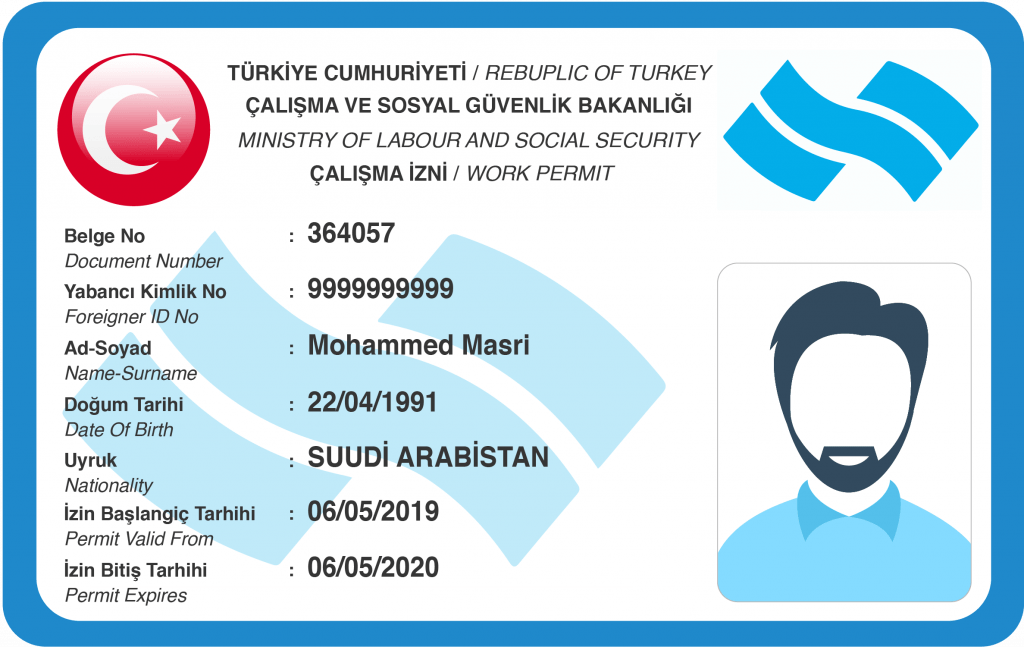Navigating the Turkish bureaucracy for business can seem as tricky as finding a needle in a haystack. You’re eager to take on the challenge of starting a business in Turkey but feel bogged down by layers of rules and paperwork. The process of business registration in Turkey may appear overwhelming, yet it holds the key to unlocking a prosperous entrepreneurship in Turkey. When navigating Turkish laws, preparation and understanding are your best allies. Did you know that knowing the ins and outs of these regulations can greatly increase your chances of success? Facing red tape, entrepreneurs often find it helps to have a roadmap. Luckily, this journey isn’t a solo expedition—there are resources and experts who can steer you through the maze. By fully grasping the subtleties of Turkish bureaucracy for business, you’ll be ready to transform challenges into stepping stones, paving the way for your venture in this vibrant market.
Understanding the Key Steps to Establish a Business in Turkey
Embarking on the voyage of starting a business in Turkey begins with grasping the essentials of business registration in Turkey. Imagine the process as a well-choreographed dance where each step counts toward completion. The first move involves selecting the right company structure—be it a limited liability company or one of the several available options that align with your goals. Translating your vision onto paper marks the next phase, where drafting articles of association gives your business its voice. Then, it’s time to immerse yourself in navigating Turkish laws, making sure every detail is checked and double-checked for compliance. Tax numbers, trade registry applications, and a myriad of permits are pivotal steps on this journey. Evidence shows that when entrepreneurs thoroughly understand these procedures, the Turkish bureaucracy for business becomes less of a daunting labyrinth and more of a map leading straight to entrepreneurship in Turkey.
Securing success in Turkish bureaucracy for business involves mastering the pivotal steps of business registration in Turkey. First and foremost, gathering the required documentation is crucial. This includes proof of identity, the articles of association, and any necessary authorizations needed for starting a business in Turkey. Next, visit the local trade registry office—your visit there is like unlocking a treasure chest, as it seals the deal on your legal business setup. The journey continues with acquiring a tax identification number, essentially the passport for your entrepreneurial travel through navigating Turkish laws. Banking in Turkey is also a consideration, for it plays a vital role in keeping your business finances afloat. Every step must be taken with precision and care, ensuring that no stone is left unturned. Understanding these key steps sets the foundation for a successful venture, laying a solid pathway toward prosperous entrepreneurship in Turkey.
Formulating a roadmap for success in Turkish bureaucracy for business means diving deep into understanding the key steps to establish a business in Turkey. Visualize the process not as an obstacle course but as a strategic game—where each move takes you closer to your goal. One of the first tasks is to define your company’s framework by picking the appropriate structure that fits your entrepreneurial vision. Beyond the paperwork, navigating Turkish laws demands unwavering attention. Establish dialogues with local experts who can offer guidance on aligning with legal mandates. Crafting a meticulously detailed business plan can often be the cornerstone of your success. Remember, starting a business in Turkey isn’t just about setting up shop but adapting to an ever-evolving market. Armed with knowledge and insight, you’ll not only meet the challenges head-on, but transform them into opportunities that pave the way for flourishing entrepreneurship in Turkey.
Essential Documents Required for Smooth Operations
To sail smoothly through the Turkish bureaucracy for business, having the right documents at hand is crucial. Before starting a business in Turkey, prepare to tackle business registration without feeling rushed or cornered. The backbone of starting a business in Turkey is documentation—think of it as your business’s passport through bureaucratic borders. First, grasp the essential paperwork. A Certificate of Activity, which confirms that your business is active, and a notarized lease contract for your premises are often needed. Also, never overlook the importance of a tax identification number. This is your key to navigating Turkish laws and financial waters legally. Organizing your paperwork early on can save you heartaches later. Entrepreneurs who wish to weave through the complexities of entrepreneurship in Turkey should start by channeling efforts into assembling the right stack of paperwork. It’s the stepping stone to ensuring that operations kick off without a hitch.
Navigating Turkish bureaucracy for business means having your documents prepared intricately like a well-choreographed dance. Beyond registration, maintaining smooth operations hinges on additional vital paperwork. Don’t miss commercial registration copies; they document your business establishment. Securing a company seal is not just formality—it’s a trusted signature in Turkish dealings. Also, keep employment contracts ready, especially if you’re hiring. They safeguard both your rights and those of your employees. Understand the banking details of your venture—an absolute necessity when facing Turkish financial institutions. Adhering to social security obligations remains crucial since compliance protects you from legal pitfalls. Navigating Turkish laws effectively mandates understanding these nuanced requirements. Entrepreneurs should treat paperwork as a living library that grows alongside your business. It’s the rampart against needless hassles and a surefire way to ensure any venture into entrepreneurship in Turkey stays legally sound and poised for success.
Equipped with the right documents, you’ll glide through the landscape of Turkish bureaucracy for business like clockwork. Vital to smooth operations is understanding the detailed documentation involved in starting a business in Turkey. Alongside tax registration forms, it’s important to have a detailed business plan ready—it’s your blueprint for success. Don’t underestimate this guide; it lays out your path and aligns with Turkish financial expectations. Another essential element is the written partnership agreement, crucial for businesses with multiple owners. Clarify roles and obligations to avoid future tussles. Plus, file any necessary permits quickly—time waits for no entrepreneur venturing into entrepreneurship in Turkey. Staying ahead means anticipating paperwork needs and averting surprises. Navigating Turkish laws becomes less daunting when documents are well-organized, ensuring that your entrepreneurial spirit isn’t bogged down by unnecessary roadblocks. This preparation turns bureaucracy from an obstacle into an enabler for success in the vibrant Turkish market.
Strategies to Overcome Common Bureaucratic Challenges
Tackling the intricacies of Turkish bureaucracy for business can sometimes feel like you’re running a marathon with hurdles every ten meters. Yet, every challenge in this race has a strategy to overcome it. One surefire approach is staying informed about the latest regulations—knowledge is power when navigating Turkish laws. Entrepreneurs often underestimate the value of patience and thorough preparation. In business registration in Turkey, skipping a single step could mean costly delays. Build a robust network, connect with locals who’ve mastered these processes, or consult experts specializing in starting a business in Turkey. These allies can illuminate the path with insights born from experience. They offer you the nitty-gritty details that textbooks miss. Remember, every step taken is a step closer to realizing your dream of successful entrepreneurship in Turkey. With each hurdle, you learn, adapt, and move forward, one step at a time.
To tackle the common challenges presented by Turkish bureaucracy for business, begin with a strong foundation: research. Before diving into business registration in Turkey, invest time in understanding the specific regulations pertinent to your industry. Tailor your strategy by analyzing case studies of previous entrepreneurs. This insight often reveals patterns, highlighting potential pitfalls to avoid. Equally essential is forming direct connections with local officials and fellow entrepreneurs; their firsthand experiences provide invaluable context for navigating Turkish laws. Don’t underestimate the power of language—ensure that your translations are impeccably accurate, as misinterpretations can lead to unnecessary red tape. Streamlining paperwork also helps; organize your documents methodically to avoid oversight. Approach this process like building a house—brick by brick, inch by inch, with thorough planning. By laying this groundwork diligently, you set the stage for smoother operations once you’ve cleared the administrative hurdles of starting a business in Turkey, bolstering your path to entrepreneurship.
When it comes to overcoming the challenges of Turkish bureaucracy for business, adaptability reigns supreme. Think of it as dancing with a partner who constantly changes the rhythm. Knowing when to pivot can save you from unwelcome surprises. For instance, when proceeding with business registration in Turkey, double-check not just the forms, but also the timing—some steps are only valid during specific periods. Networking acts as your spotlight, illuminating the nuances of navigating Turkish laws. Forge alliances beyond paperwork by attending local business forums or joining chambers of commerce. This creates a supportive tapestry, linking you with others starting a business in Turkey. Here, entrepreneurship in Turkey becomes less about dodging obstacles and more about crafting a success story. With each bureaucratic twist, stay flexible and ready to adjust your steps, dancing confidently towards your business goals.






